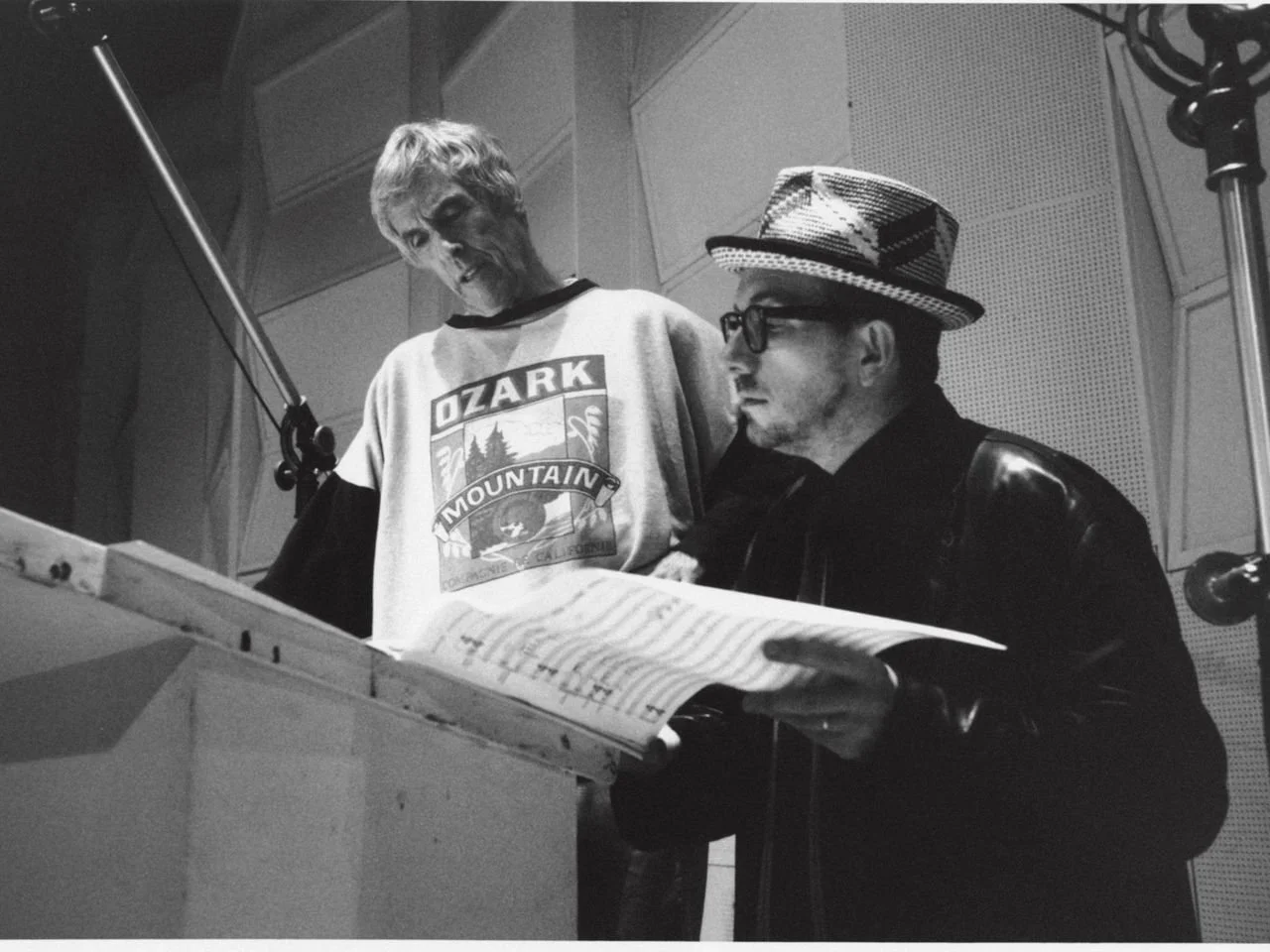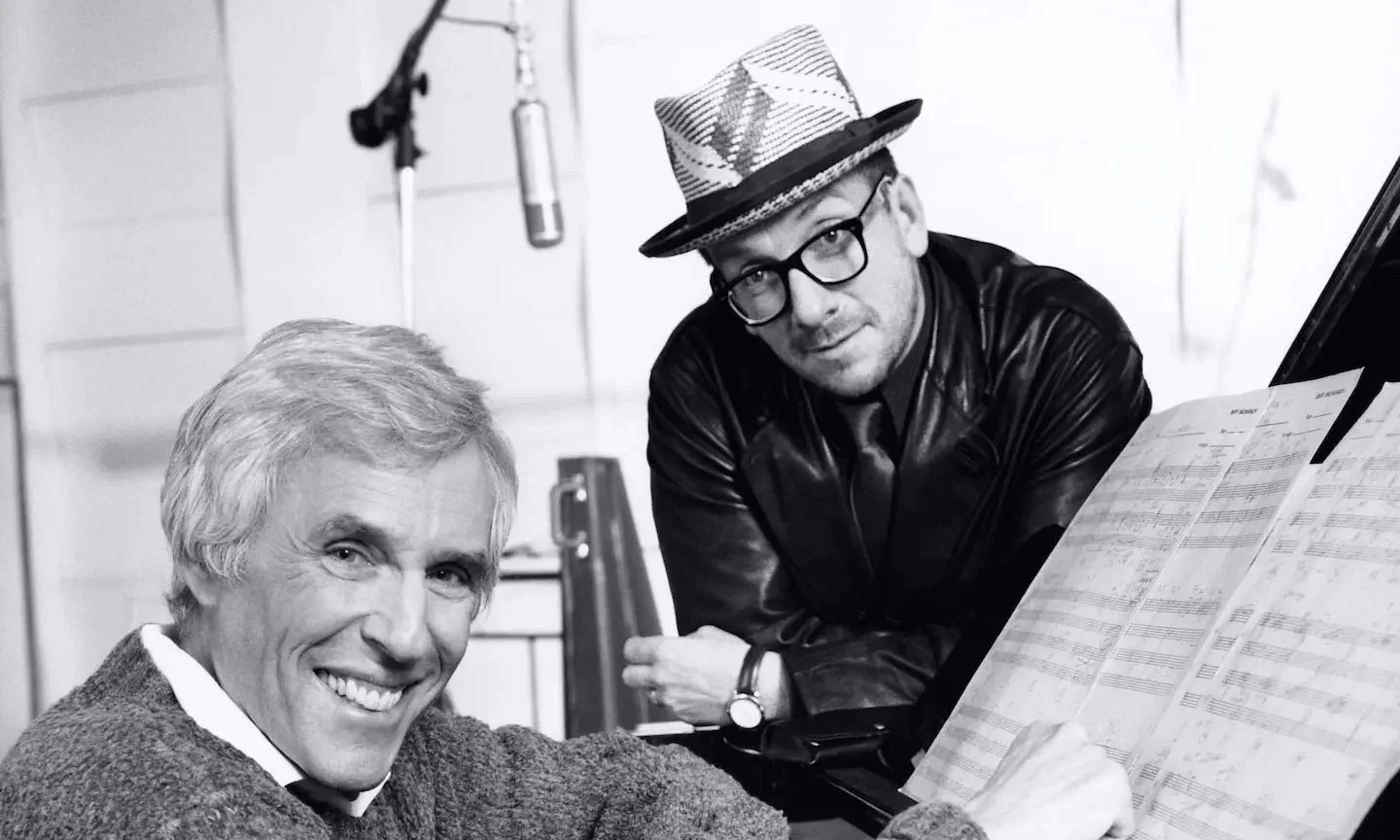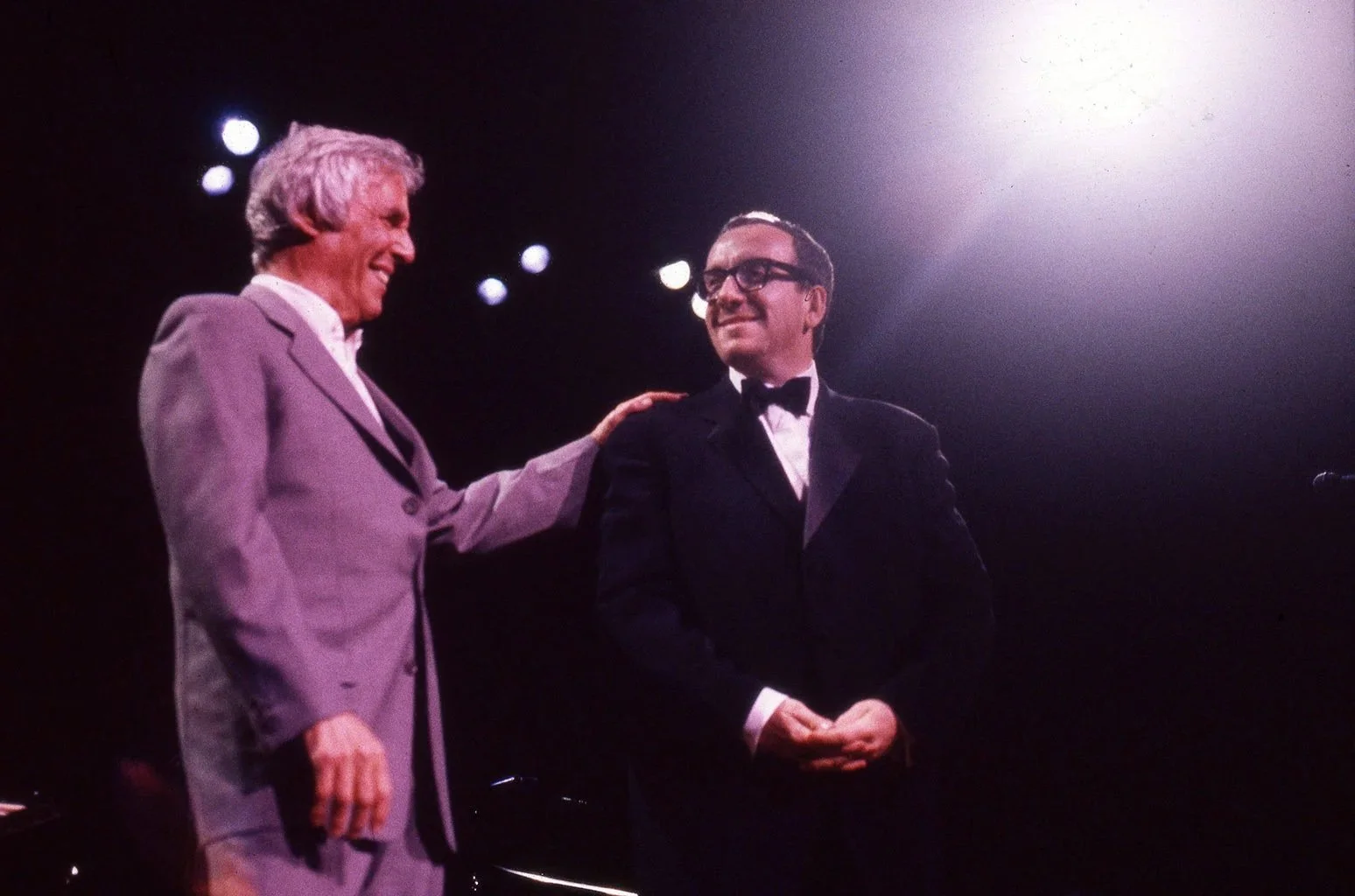Looking Back on Bacharach & Costello
Burt Bacharach passed away last month on the 8th of February at the age of 94. I didn’t acknowledge this then, but when I saw a recently released collection called The Songs of Bacharach and Costello I thought I’d write about one of Costello’s finest works, together with the inimitable Burt.
Bacharach wrote timeless classics. Songs that have been performed and covered a multitude of times, such as the Shirelles, Aretha Franklin, Dusty Springfield, The Carpenters, Dionne Warwick, B.J. Thomas, Isaac Hayes, and many more. He also wrote film scores such as Butch Cassidy and the Sundance Kid, Alfie, and others that escape me at this moment.
Possibly my favorite collaboration of Bacharach’s, and one of the best collaborative efforts of Elvis Costello (closely tied with his demos for Paul McCartney’s Flowers in the Dirt), is their 1998 album Painted From Memory.
The collaboration started when the two were commissioned to write a song for the 1996 film “Grace of My Heart,” which turned out to be “God Give Me Strength.” Painted From Memory was Costello’s first album in two years, and Bacharach hadn’t made one in 21 years(!).
Regarding movie soundtracks, Costello would cover Bacharach’s “I’ll Never Fall In Love Again” for The Spy Who Shagged Me in 1999. (That same year, “She” featured in a little-known movie called Notting Hill.)
The album is lushly arranged in typical Bacharach fashion. Opener “In the Darkest Place” is a perfect, though somber, introduction. The sparse verse gives way to a chorus accompanied by strings and backing vocals.
Costello’s at the top of his game here, crooning about the dissolution of a relationship without getting schmaltzy. Like his best work, there’s sharp wit and wordplay intertwined with a hint of world-weariness. Coupled with Burt’s arrangement, Costello’s vocals take new heights.
The album revolves around the themes above of a collapsing relationship. “God Give Me Strength” is perhaps the album’s pinnacle, crescendoing as Costello’s voice swells “I want him to hurt” and the strings soar achingly beautiful. The lyrical themes touch on regret, loneliness, unfaithfulness, and rejection. Hardly unfamiliar pop music themes, but the strength lies in the word choices, phrasing, and storytelling.
The narrator’s lyrics reveal a person with feelings of pettiness, resentment, and jealousy – less than admirable traits that make the songs all the more relatable in that it’s written in a way that’s human and fallible, rather some kind of holier-than-thou attitude.
“Toledo” is a stand-out track for the above reasons (and also features backing vocals). It has an earworm of a melody that sticks with you. “This House is Empty Now” tells a story of a broken home and the bad memories that still live in its walls: “These rooms play tricks upon you / remember when they were always filled with laughter/ but now they’re quite deserted / they seem to just echo voices raised in anger.” And when Costello asks a seemingly quaint line as “How am I supposed to live without you?” it seems less than a clichéd placeholder and more of an honest question in the wake of a breakup that affects not just the parts involved but their shared space and friendships.
“Tears at the Birthday Party” expertly parallels the small disappointments of childhood with the realities of navigating adult relationships (whatever that means). “I see you share your cake with him” is such a Costello line.
But that’s not to say that this is a dour album; Quite the opposite. Bacharach’s arrangements are exuberant and the ensemble play with joyous gusto – even when things get dark. “The Sweetest Punch” features rousing bells and “Such Unlikely Lovers” has maybe the most forward motion on the album.
The beauty of Bacharach’s music is that he can make wordy songs memorable and melodic. In the hands of other songwriters, these songs would’ve been turned into forgettable fluff for an adult contemporary station. Here, the timeless (though wonderfully warm 60s-sounding orchestra) tunes have a wide appeal that resonates to this day.
Bacharach mastered orchestral pop, and this album is a testament to that.
The Songs of Bacharach and Costello is out now.


